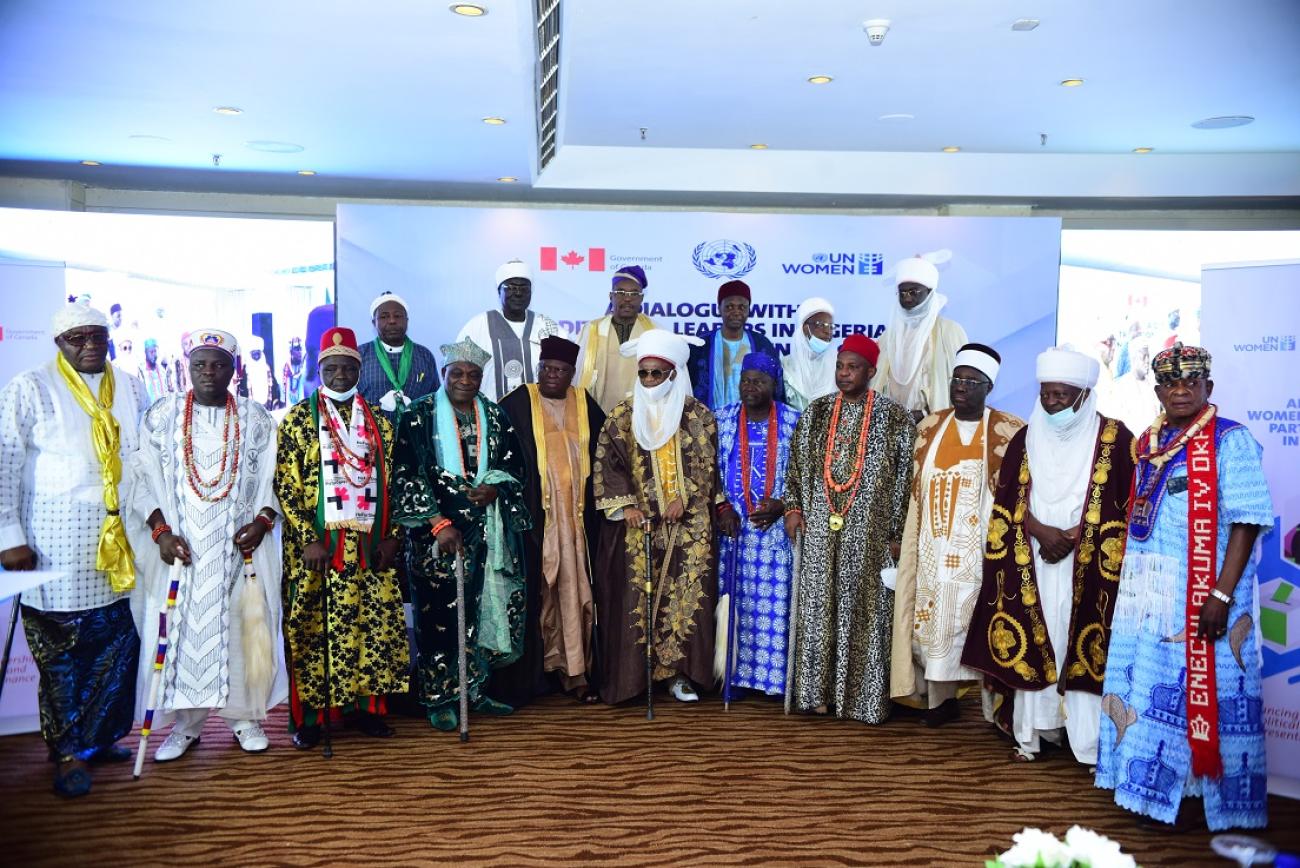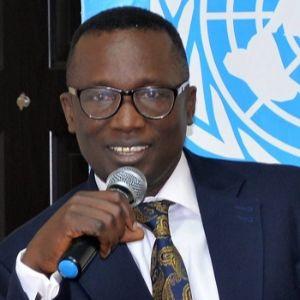As the 2023 elections draw nearer, traditional and religious leaders in Nigeria have pledged their commitments to supporting women's participation in all elections including the 2023 elections and preventing electoral gender-based violence.
This was contained in the communique issued by the Zonal Representatives of the Traditional Rulers in Nigeria at the end of a one-day dialogue on Ending Electoral Violence against Women in elections held on 29 August 2022 in Abuja.
The Office of the United Nations Resident and Humanitarian Coordinator and UN Women convened the leadership of Council of Traditional Leaders of Africa (COTLA) in Nigeria and other influential high-level traditional leaders to engage and pledge commitments for supporting women's participation in all elections including the 2023 elections and beyond, including preventing electoral gender-based violence.
“Traditional rulers shall be intentional about encouraging women to participate in politics by mobilizing participation that can be backed up by religious obligations supporting participation of women in politics;” says the communique, “Traditional rulers shall lead community awareness and sensitization efforts to enhance perception of women's participation in politics; and they “shall address religious misconceptions within their domain that inhibits women's unfettered participation in politics.”
UN Resident and Humanitarian Coordinator Matthias Schmale noted that “Violence is still a major factor that threatens citizen’s participation, especially women who are most vulnerable in conflict situations and suffer from GBV. In times of crises, the numbers rise, as seen during the CIVID-19 pandemic.”
He emphasised that violence against women in politics and in elections must be addressed with a sense of urgency, especially as Nigeria approaches the 2023 general elections. “This type of violence”, he continued, “has far-reaching consequences and is manifested in several forms: physical violence, sexual violence, threats and coercion, and gender hate speech.”
Schmale thanked the traditional leaders in Nigeria for their commitment to promoting peace in their domains and their fight against gender-based violence.
UN Women Country Representative in Nigeria and the ECOWAS, Beatrice Eyong, noted that there were very qualified women in and out of Nigeria. “It is only the private sector that has up to 20% Women in executive positions. The statistic for Women in executive positions in public institutions is by far lower.” She said.
Traditional leaders, Eyong said, could organize strong advocacy campaigns with government and political parties for appropriate laws, policies and protective measures; organize meetings with Women aspirants from all parties and encourage them as well as open support for Women in politics; and support gender-responsive electoral management.
The Canadian High Commissioner to Nigeria, Ambassador James Christoff, represented by the Head of Cooperation, Djifa Ahado, said Canada firmly believed that supporting the empowerment of women and girls was the best way to have a more peaceful, more inclusive and more prosperous Nigeria.
According to him, having women at the table to play a greater role in decision making, particularly at the political level was a key part. Christoff added that the Canadian government recognised that women considering political participation faced a number of challenges – whether as a candidate, a political supporter, an election administrator or a voter.





